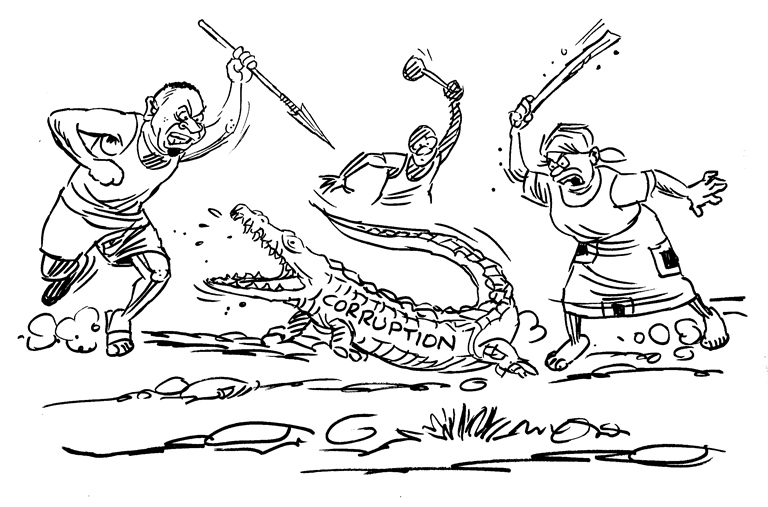Is corruption really unethical?
A couple of weeks ago, this column featured some reflections about the importance of ethical leadership and followership in which it was emphasized that good leaders and citizens must be guided by principles of integrity just as citizens must not be passive followers. The question of being ethical seemed to suggest that one’s conduct must be aligned to some universally agreed parameters for measuring good and bad leadership or followership in view of the fight against corruption. In a way we were treading along a very important matter that philosophers have grappled with, about the grounding for judging what is essentially right or wrong, morally.
This past week I have belaboured my mind on the philosophical question of “What is ethical” as I tried to appreciate how the prevailing social and economic factors can affect people’s judgment about whether corruption is entirely bad or good. I state this line of thought with full awareness of the potential controversy and strain that such a question brings on a matter of huge importance such as the fight against corruption.
Many reports on corruption anywhere in the world seem to agree that corruption is unethical especially because it robs humanity of fundamental human rights including social stability and economic growth. It almost comes as a given that we have a universal consensus that corruption is unethical, and therefore bad.
Why then, if we may ask, is corruption practiced almost wantonly when there seems to be a universal agreement that corruption is unethical and a hazard to humanity? Why do good people purposely seek bribes to provide a public service? Why do well-meaning political organizations and leaders accept support from suspicious donors on the promise of business contracts and other advantages? Why do well-established religious institutions accept stained gifts from well-known criminals that masquerade as generous benefactors? Why do we have on our land, traditional leaders who hide behind culture or tradition to get away from crime? Is there a good reason that we still have police officers who pay their church tithe from a bribe?
It has often been considered obvious that any good person or institution will choose to be ethical in dealing with a choice to engage in corruption or not. In fact, our society is not short of clichés that suggest that god-fearing people will always be ethical by staying away from corruption. However, in a society where corruption seems to be the closest and most fashionable means of survival it should not be surprising to see that no one is spared from the temptation to choose corruption as the only sensible means to survive!
Perhaps this explains why we have heard too often about business people or companies that have had to pay bribes because the business environment is just too infiltrated with corrupt syndicates and business survival is a matter of life or death! We cannot continue to make grave assumptions that everyone cares more about being ethical in the face of “urgent” private, personal or self-serving reasons. How unethical is a mother who decides to pay a bribe in order to secure emergency medical attention for her child?
Our country is presently going through one its worst economic experiences. It is very naïve to assume that people, especially the most vulnerable of our society, will stay away from corruption when it looks like the most appealing choice for survival is to join the bandwagon.
All I am saying is that perhaps in dealing with the question of why people engage in corruption, we must start to understand the basis for which people or institutions in our time, having been persuaded by the prevailing social and economic inequalities, will start to justify corruption. There are many reasons that may convince people to engage in corruption because it appears to be the shortest way to beat unfairness in employment, business, politics, education, access to health and many other social and economic needs.




